Education
Residential Schools/Hostels Funded Under Samagra Shiksha Named As Netaji Subhas Chandra Bose Residential Schools/Hostels
The association of these schools with Netaji Subhash Chandra Bose will act as an inspiration to the children and also motivate the teachers, staff and administration to enable them to achieve high standards of excellence.
Published
3 years agoon
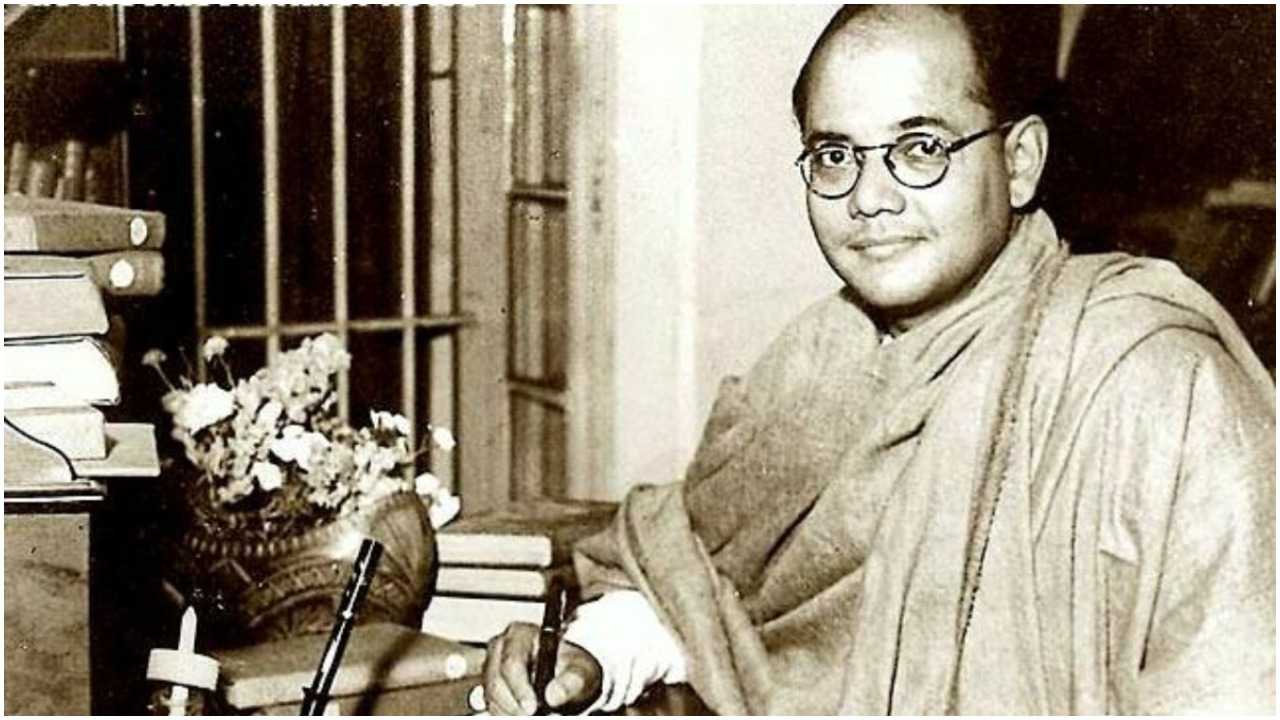
In a befitting honour to Netaji Subhas Chandra Bose, the Ministry of Education has decided to name residential schools/ hostels funded under Samagra Shiksha of MoE, as “Netaji Subhas Chandra Bose residential schools/hostels”. The association of these schools with Netaji Subhash Chandra Bose will act as an inspiration to the children and also motivate the teachers, staff and administration to enable them to achieve high standards of excellence. This will also help create awareness about the facility of these Residential Schools and Hostels in difficult areas and inspire these schools to achieve high standards of quality education.
The Ministry of Education under Samagra Shiksha provides financial assistance to states and UTs for opening and running of Residential Schools and Hostels in hilly terrain, small and sparsely populated areas for children who are in need of shelter and care, in addition to the provision of regular schools. The objective is to ensure universal enrolment and provide schooling facilities in areas which are sparsely populated (mostly tribal areas) where the opening of schools may not be viable and for children in urban areas who are in need of care and protection.
The residential facilities are also provided to child labour rescued, migrant children who belong to poor landless families, children without adult protection, separated from their families, internally displaced persons, and children from the areas of social and armed conflict and natural calamities. Preference is given to EBBs, LWE affected districts, SFDs and the Aspirational districts identified by NITI Aayog.
In these residential schools and hostels, in addition to the regular school curriculum, interventions for all-round development of children such as the provision of Specific Skill Training, physical self-defence, medical care, community participation, monthly stipend are also made available to children. A total of 1063 residential facilities (383 residential Schools and 680 Hostels) have been sanctioned to States and UTs so far.
You may like
-


Ivy Pressure Unveiled- The Need to Look Beyond the Ivy Gates
-


Ooty Set to Host India’s Premier Liberal Arts Symposium: LASSI 2024
-
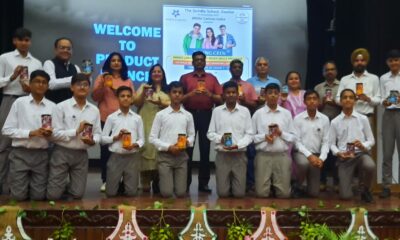

Scindia School Students Launch Start-Ups with White Canvas India’s Young CEO Program
-


Unsupervised Explorations: Rethinking Student Trips
-


Mapping Green Careers: Guiding Students Towards Sustainable Job Opportunities
-


Pricey Presents, Precocious Pressures: The Cost of Gift-Giving to Children
-
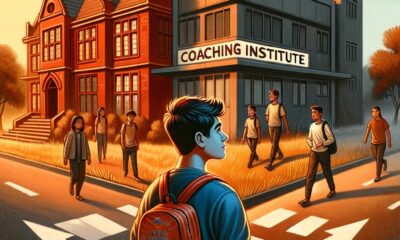

Addressing the Transition From Classrooms to Coaching: The Shifted Focus
-


Questioning the Trend of Lavish Farewells- #FarewellFiasco
-
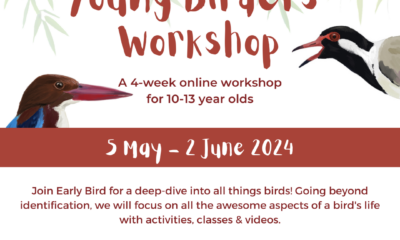

Young Birders’ Workshop Opens Registration for Children Aged 10-13 Years
-
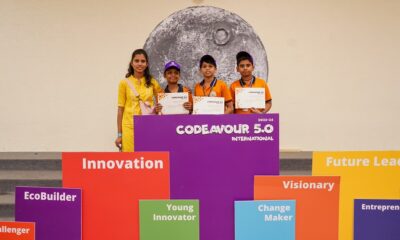

STEMpedia Successfully Completed Codeavour 5.0- India’s National Innovation Fest
Education
Ivy Pressure Unveiled- The Need to Look Beyond the Ivy Gates
Published
17 hours agoon
April 24, 2024
In the heart of Prestise Valley School, nestled in a bustling city that prided itself on academic excellence, the story of Shanaya unfolded—a narrative steeped in ambition, aspiration, and the unspoken realities of chasing Ivy League dreams.
Shanaya , with her keen mind and boundless ambition, had always been the emblem of Prestise Valley’s pursuit of academic supremacy. Encouraged by a system that equated success with admission to the world’s most esteemed universities, she became the embodiment of her school’s aspirations. The corridors buzzed with talks of her future, painting her as the next prodigy destined for Ivy League glory.
As the acceptance letter from an illustrious Ivy League college arrived, it was not just a personal victory for Shanaya but a badge of honour for Prestise Valley. Yet, beneath the veneer of celebration, lay an overlooked truth—while Shanaya was prepared to compete for her place among the elites, she was unprepared for the reality that awaited her beyond the hallowed halls of her dream college.
Embarking on her journey with pride and anticipation, Shanaya soon encountered the stark disparity between being academically eligible and being holistically prepared. Surrounded by peers who were not only academically gifted but also equipped with a wealth of practical skills and worldly insights, she felt increasingly out of her depth. The rigorous curriculum, coupled with the expectations to excel in extracurricular arenas, highlighted the gaps in her preparation. Skills that should have been nurtured alongside academic pursuits—critical thinking, adaptability, and emotional resilience—were conspicuously absent.
The realisation dawned upon Shanaya that the race to the Ivy gates had overlooked the essence of true education. Her school’s relentless focus on prestigious admissions had neglected the foundational aspects that would enable her to thrive in such a competitive environment. With a heavy heart, Shanaya made the difficult decision to return home, facing not just the personal disappointment of unfulfilled potential but also the weight of collective expectations.
Her return was met with a silence that spoke volumes, a stark contrast to the fanfare that had heralded her departure. In the quietude of introspection, Shanaya pondered the lessons learned—not from textbooks, but from life. She resolved to chart a new path, one that balanced academic aspirations with the development of a versatile skill set and a resilient spirit.
Shanaya ‘s story, a mirror to countless young minds navigating the pressures of Ivy League aspirations, serves as a poignant reminder of the need for a holistic approach to education. It challenges the prevailing narrative, urging a shift from the singular goal of elite college admissions to fostering well-rounded individuals capable of navigating the complexities of the global stage.
As we explore the stories behind #IvyPressureUnveiled, how might we reconsider the essence of education—not merely as a race to the pinnacle but as a pathway of growth, discovery, and genuine readiness for life beyond the Ivy gates?
To read more on such trends that need to be called out and #un-trended, head to the April issue of our magazine here.
Education
Ooty Set to Host India’s Premier Liberal Arts Symposium: LASSI 2024
Published
2 days agoon
April 23, 2024
ScooNews, in collaboration with Good Shepherd International School, is set to host Liberal Arts and Science Symposium India (LASSI 2024), a transformative symposium designed to reshape the understanding and application of Liberal Arts and Science education in India. The event, themed ‘Shaping Tomorrow,’ will convene at the serene campus of Good Shepherd International School, nestled in the Nilgiri Hills, and aims to attract educators, students, and industry experts from across the world.
LASSI 2024 is dedicated to exploring the vital role of Liberal Arts and Sciences in developing well-rounded individuals capable of thriving in a dynamic global landscape. The event will provide a comprehensive platform for attendees to delve into the core concepts of Liberal Arts, tackle prevalent challenges, and assess the global perspectives shaping this field of study.
The symposium will feature an array of masterclasses, keynotes, and case studies, each designed to provide deep insights into the integration of Liberal Arts in modern education and its relevance in today’s job market. Participants will gain first-hand knowledge about overcoming barriers to implementing Liberal Arts in the Indian education system and the professional impacts of such an education.
Jacob Thomas, President of Good Shepherd International School, Ooty, expressed his enthusiasm about hosting the event: “GSIS is privileged to host the LASSI conclave, which is more than just an event; it’s a celebration of the enduring essence of education, the beauty of collaborative effort, and our collective quest for knowledge. We invite everyone to embrace this opportunity to learn, share, and engage in groundbreaking explorations of liberal arts and social sciences.”
The event will feature a dynamic series of presentations by a distinguished lineup of speakers. Leading the charge is Professor Sugata Mitra, a globally renowned educationist, who will deliver a session designed to inspire and redefine educational norms. Vardan Kabra, co-founder of Fountainhead School and author of “Reimagining Indian Education,” will discuss innovative educational strategies, and Maheshwar Peri, Founder of Careers360, will explore the variety of Liberal Arts programs in India. Additional speakers include, Naman Kandoi from Mayoor School Jaipur, Shankar Vanavarayar from Kumaraguru Group of Institutions, Chetna Mehrotra from Rangbhumi, Dr. Venka Purushothaman from LASALLE College of the Arts, Singapore, Prof Anil Srinivasan from Krea University, Dr Vijila Keneddy from KCLAS, Radhika Lobo from Vidyashilp University, Rahul Batra from Prakriti School, Reena Gupta from Ashoka University, Nisha Bhakar from Nandha Gokulam Life School, Sandeep Sethi from Maharaja Sawai Man Singh II Museum Trust, Vivek Atray from Shoolini University, and Prof. Saikat Majumdar from Ashoka University.
Additionally, LASSI 2024 will showcase leading Liberal Arts colleges from India and around the world, helping guide prospective students in making informed decisions about their educational futures. Success stories and groundbreaking research findings presented at the symposium will underscore the transformative impact of Liberal Arts education on careers and personal growth.
Set against the backdrop of Good Shepherd International School’s commitment to excellence in academics, sports, and co-curricular activities, LASSI 2024 promises to be a landmark event in the educational calendar. The school’s ethos, encapsulated by its motto “Truth, Trust, and Triumph,” aligns perfectly with the objectives of the symposium, promising a conducive environment for learning and interaction.
As LASSI 2024 prepares to open its doors, ScooNews and Good Shepherd International School invite educators, students, and all stakeholders to join in this enlightening journey. The symposium is poised to not only discuss but also shape the future of education, preparing the next generation for the challenges and opportunities of the 21st century.
Education
Scindia School Students Launch Start-Ups with White Canvas India’s Young CEO Program
Published
2 days agoon
April 23, 2024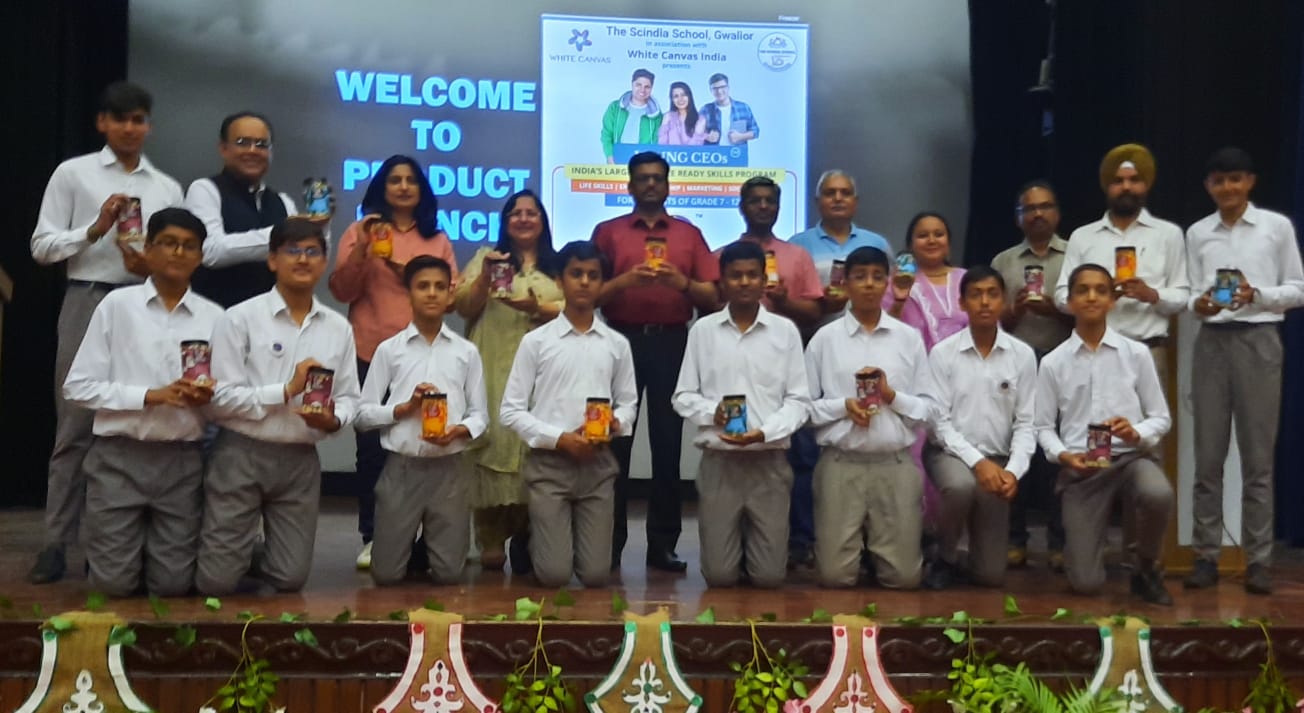
The Scindia School, in collaboration with White Canvas India’s Young CEO Program, has achieved a remarkable feat in fostering young entrepreneurship among its students. Inspired by Prime Minister Narendra Modi’s visit on October 21, 2023, where he encouraged students to “Dream big and Achieve big”, the school has seen the successful launch of three student-led start-ups within 100 working days following the event.
The newly established ventures include E – Siksha Sankalp, India’s pioneering digital literacy initiative that scales socio-entrepreneurial impact. Additionally, the students introduced Popped and Poppin, a novel superfood brand led by teenagers offering flavoured Makhana, and Bam brush, which features a range of sustainable products aligned with the United Nations Sustainable Development Goals.
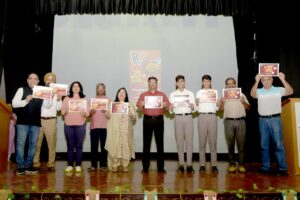
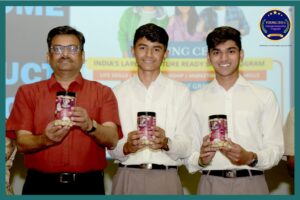
The teenage founders Khush Todi, Arrthham Jalan, Harshvardhan Wadher, Tanush Somani, and Ved Gupta have been deeply involved in every facet of their businesses. From conducting need analysis and crafting professional business plans to negotiating with vendors and marketing their products, these young entrepreneurs have actively demonstrated their capabilities in the real world. Their efforts are supported by the White Canvas India Young CEO Program, India’s first and most extensive entrepreneurial skills initiative for teenagers.
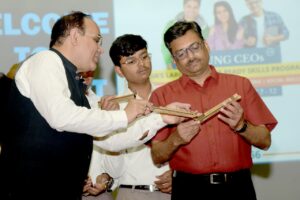
Shri Ajay Singh, Principal of The Scindia School, expressed his satisfaction with the program’s success, noting, “The program has met its outcomes and I am very happy.” Furthermore, Samaresh Shah, Founder of White Canvas India, highlighted the program’s broader mission, stating, “The White Canvas India Young CEO program is committed to making every Scindian a Viksit Bharat Ambassador.”
This initiative is in line with the National Education Policy and supports the vision of the World Economic Forum, Harvard Business Reports, and Forbes Entrepreneurship guidelines. It aims not just to educate but to empower students, equipping them with the necessary skills to thrive as future leaders and innovators.
As these young CEOs continue to develop their enterprises, they not only contribute to their personal growth but also set a precedent for youth entrepreneurship in India, proving that age is just a number when it comes to innovation and leadership.
Education
Unsupervised Explorations: Rethinking Student Trips
Published
2 days agoon
April 23, 2024
In a tale of youthful exuberance and unforeseen peril, six students from Class 12 embarked on a journey to Goa, a rite of passage celebrated by many as a final hurrah before stepping into adulthood. With permission from their parents, who were perhaps too trusting or caught up in their own lives, the group set out with excitement pulsing through their veins. Upon landing, they were greeted not just by the balmy Goan air but by three massive SUVs, reserved for their adventure—a promise of freedom and the thrill of the open road.
Their accommodation was a sprawling villa, costing a small fortune at 70,000 INR per night, equipped with private pools and luxuriously appointed rooms. It was a palace for kings and queens of the night, a haven for six souls intertwined in the throes of adolescence. Three rooms for three couples, the arrangements were a testament to their intentions, seeking privacy and moments of unchecked passion under the guise of a holiday.
As the days unfolded, the allure of Goa’s vibrant nightlife beckoned. The students, drawn to the magnetic pull of music and dance, found themselves in the heart of the party scene, clubbing into the early hours. It was here, amidst the revelry, that they encountered individuals with sinister motives—drug peddlers who saw not just customers but vulnerable targets in these wide-eyed teenagers.
Swept up in a desire to appear worldly and sophisticated, the group made a decision that would pivot their holiday from a dream to a nightmare. They purchased drugs, a choice made without foresight or understanding of the consequences. Their naivety became their downfall when the police, vigilant and unyielding, caught them in possession of these illegal substances.
The aftermath was swift and severe. The teenagers, underage and unprepared for the legal ramifications, were thrust into the cold reality of juvenile custody. Their parents, irrespective of their affluence, were faced with a situation no amount of money could easily resolve. Frantic and fearful, they did everything within their power to secure their children’s release, confronted with the harsh truth of their offspring’s actions.
This story, inspired by real events, serves as a stark reminder of the dangers lurking behind the facade of freedom and the allure of adulthood. It raises pressing questions about the role of guardianship and parental oversight in the lives of teenagers standing on the precipice of adulthood.
Could this grave misstep have been avoided had there been a local guardian present, a guiding light in unfamiliar territory? Would a more vigilant approach from the parents, a pause to question and understand, have rewritten the story’s conclusion? This incident forces us to confront the reality of our responsibilities towards our youth—not just to grant them freedom but to equip them with the wisdom to navigate it. As we ponder the delicate balance between trust and caution, we must ask ourselves: At what cost does freedom come, and are we doing enough to ensure that the journey into independence does not lead to a fall from grace?
To read more on such trends that need to be called out and #un-trended, head to the April issue of our magazine here.
Education
Mapping Green Careers: Guiding Students Towards Sustainable Job Opportunities
Published
2 days agoon
April 22, 2024
In the wake of escalating environmental concerns and the global push towards sustainability, the demand for green careers is surging. This World Health Day, celebrated on 22 April, 2024, let us understand these careers that not only aim to protect and preserve our planet but also offer promising economic prospects. Indian educational institutions, recognising the burgeoning sector of environmental jobs, are increasingly gearing their curricula and guidance services to help students navigate this new green economy.
Understanding Green Careers
Green careers encompass a broad spectrum of industries and sectors that aim to reduce environmental impact and promote sustainability. From renewable energy and sustainable agriculture to environmental policy and green architecture, the opportunities are vast and varied. These careers are crucial in addressing the challenges posed by climate change, resource depletion, and ecological degradation.
The Role of Schools in Promoting Green Careers
Schools play a pivotal role in shaping the career choices of students. By integrating environmental education and sustainability into their curricula, schools can expose students to the importance and viability of green careers. This can be achieved through several strategic initiatives:
- Curriculum Integration: Incorporating topics on sustainability, environmental science, and eco-friendly technologies within the STEM subjects can provide students with the foundational knowledge necessary for pursuing careers in these fields.
- Career Counselling: Schools can offer specialised counselling sessions that inform students about various green careers. These sessions can include information on the requisite educational paths, potential job markets, and long-term benefits of working in eco-conscious sectors.
- Industry Partnerships: Collaborations with companies and organisations in the sustainability sector can offer students real-world exposure through internships, workshops, and guest lectures. These experiences are invaluable in helping students make informed decisions about their future careers.
- Project-Based Learning: Encouraging students to undertake projects that solve real environmental issues can spark interest in green careers. These projects not only enhance learning but also instil a sense of responsibility towards the environment.
The Indian Job Market Prospects
In India, the renewable energy sector is a significant employer, with the country aiming to reach a renewable energy capacity of 450 GW by 2030. Careers in solar panel installation, wind energy engineering, and sustainability consultancy are on the rise. Moreover, the government’s emphasis on clean technologies and sustainable urban planning is creating numerous opportunities in green architecture and environmental planning.
Global Job Market Trends
Globally, the green job market is expanding rapidly. In Europe, the European Green Deal aims to make the EU’s economy sustainable by turning climate and environmental challenges into opportunities across all policy areas. This initiative is expected to bolster job creation in renewable energy, energy efficiency, and green transportation sectors.
In the United States, the growth of the electric vehicle (EV) industry is driving demand for jobs ranging from high-tech battery manufacturing to network systems management for EV charging stations. Similarly, the push for green buildings is fuelling a need for professionals skilled in green construction and building information modelling.
Preparing Students for the Future
By promoting green careers, schools are not only guiding students towards economically viable job paths but are also preparing them to be active participants in the stewardship of the planet. This dual focus on economic growth and environmental sustainability is essential for building a resilient global economy that can address the pressing challenges of our times.
To summarise, as the world increasingly pivots towards sustainability, the role of education in preparing the next generation for green careers becomes more crucial. Schools that embrace this shift not only contribute to the global demand for environmental stewards but also ensure that their students are ready for the future job market—a market that values both the economy and the environment.
Education
Pricey Presents, Precocious Pressures: The Cost of Gift-Giving to Children
Published
3 days agoon
April 22, 2024
In the intricate fabric of contemporary society, entwined with the threads of status and materialism, the ritual of gift-giving to young children has morphed into a showcase of wealth and social stature. This tale shines a light on the ripple effect of such extravagance through the eyes of Ayaan’s peers, young souls caught in the whirlwind of competition and comparison.
When Ayaan arrives at school with sneakers worth 80k or brandishes the latest iPhone as casually as a textbook, it’s not just a display of wealth; it becomes a benchmark, setting aflame a cycle of envy and desire among his classmates. The children, innocent in their yearnings, unknowingly step onto a treadmill of materialistic pursuit, urging their parents towards the edge of financial prudence in a bid to not fall behind.
The spectacle reaches its zenith when Ayaan, in a display of unparalleled opulence, gifts iPods as return gifts on his birthday. An act, while grand, sends shockwaves through his circle, planting seeds of expectation and entitlement in young hearts. Parents, caught between nurturing happiness and teaching value, find themselves navigating a treacherous path of societal pressure and fiscal responsibility.
As each child in Ayaan’s orbit feels compelled to mirror his lavish lifestyle, the essence of childhood camaraderie is shadowed by the looming spectre of materialism. Friendships, once untainted by the world’s complexities, now bear the weight of economic disparity. The playground becomes a silent witness to conversations not of games and dreams, but of gadgets and brands, a testament to a culture veering away from the innocence of youth.
The impact extends beyond the tangible, chipping away at the pillars of equality and mutual respect. As peers vie to outdo each other in a race fuelled by parental indulgence, the divide widens not just in their possessions but in their perceptions of self-worth and success. The classroom, a microcosm of society, reflects a disturbing trend of measuring one’s value through the lens of ownership and extravagance.
This narrative, while centred on Ayaan and his affluent displays, casts a spotlight on the broader societal implications of such gift-giving practices. It prompts a critical examination of the values we impart to our children and the world we aspire to create for them. As we navigate this maze of materialism and the stories of Ayaan and his peers unfold, they serve as a mirror to our collective conscience, urging us to reconsider the legacy we wish to leave behind. The question that beckons us to reflect is profound: Are we raising a generation that values possessions over people, status over substance?
To read more on such trends that need to be called out and #un-trended, head to the April issue of our magazine here.
Education
Addressing the Transition From Classrooms to Coaching: The Shifted Focus
Published
5 days agoon
April 19, 2024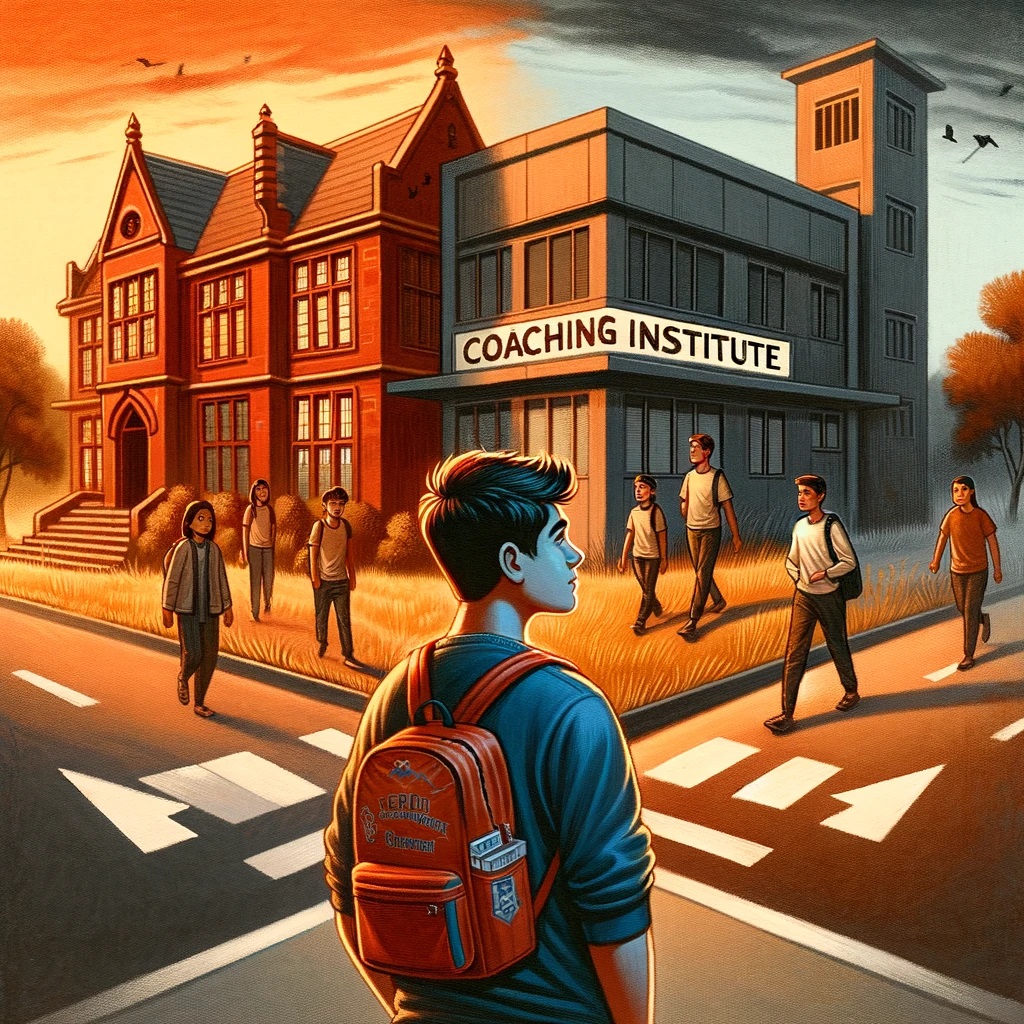
In the bustling academic corridors of Woody High, nestled amidst the verdant suburbs of a thriving city, the story of Vikram, a bright and ambitious student, begins to unfold. Vikram, like many of his peers, found himself at a crossroads as he stepped into the crucial years of 11th standard, caught between the traditional path of school education and the burgeoning trend of dummy admissions.Classrooms to Coaching: The Shifted Focus
The lure of coaching centres, promising a direct route to success in competitive exams, became increasingly irresistible. Vikram watched as one by one, his classmates traded the familiar setting of classrooms for the rigorous regimen of coaching institutes. The promise was simple: a focused preparation tailor-made for cracking entrance exams, seemingly a pragmatic choice in an increasingly competitive world.
However, this exodus from school to coaching centres revealed a deeper malaise within the education system. Schools, once vibrant communities of learning and growth, had slowly morphed into factories churning out board exam results. The holistic development of students, their readiness for the world beyond the gates of Woody High, seemed to have taken a backseat to the singular pursuit of academic scores.
Vikram’s decision to join the coaching bandwagon was met with a mix of hope and apprehension. The initial months were a blur of new concepts, relentless practice sessions, and the constant pressure to outperform. Yet, as the novelty wore off, Vikram found himself yearning for the missed debates in history class, the group projects in science, and the sense of belonging that came with being part of the school community.
The turning point came when Vikram, amidst his packed coaching schedule, volunteered for a community project. The experience was eye-opening, highlighting the gap between the rote learning at coaching centres and the practical knowledge and soft skills required in the real world. It dawned on Vikram that education was not just about clearing exams but about building a foundation for life.
As Woody High grappled with the dwindling numbers of students in its classrooms, it became evident that a change was needed. Schools had to evolve beyond their board-result orientation, integrating curriculum with real-world applications, fostering critical thinking, and preparing students for life’s myriad challenges.
The story, based on real incidents, raises the question that looms large, as we reflect on the narrative of #ClassroomOrCoaching: How can schools reclaim their role as sanctuaries of holistic education, ensuring they remain relevant and valuable in the lives of students like Vikram, not just as conduits to board results but as launchpads for their futures?
In a world where the race to the top often overlooks the essence of learning, can we afford to let coaching centres replace the rich, multifaceted experience of school education?
To read more on such trends that need to be called out and #un-trended, head to the April issue of our magazine here.
Education
Questioning the Trend of Lavish Farewells- #FarewellFiasco
Published
7 days agoon
April 18, 2024
Imagine your child is attending their Year 12 farewell. It is a night they have been looking forward to, marking the end of their school journey and the start of something new. The atmosphere is charged with excitement, laughter, and the bittersweet feeling of saying goodbye. As the evening wraps up, the buzz does not fade; it shifts to the streets. A group of friends, adrenaline still running high from the night’s celebrations, decide to extend the farewell with a car rally. Among them is Aarav, driving his family’s SUV, a vehicle too powerful for his inexperienced hands.
The city sleeps as the convoy of cars snakes its way through the deserted streets, the hum of engines breaking the night’s silence. Aarav, feeling the thrill of the chase, pushes the pedal down, the speedometer needle climbing higher and higher. His friends, in the car beside him, cheer him on, the competition heating up as they approach the ring road. It is a wide stretch, seemingly perfect for their race, away from the prying eyes of the night.
But in a heartbeat, the night turns tragic. Aarav loses control. The SUV, now a projectile, careers off the road, skidding and tumbling for what seems like an eternity. The aftermath is a scene of devastation. The vehicle, unrecognisable, lies in ruins, and silence once again claims the night, now heavy with the weight of consequences.
By the time the first light of dawn touches the sky, the police are at the scene, piecing together the events. The accident leaves one young soul lost to the night and another battling for life in hospital. Questions swirl around the circumstances that led to this moment. Was it the rush of speed, a momentary lapse in judgement, or something more? The community is left reeling, grappling with the reality of a celebration turned catastrophe.
As the investigation unfolds, the police sift through CCTV footage, trying to trace the sequence of events and the other vehicles involved. Speculations arise that the tragedy was the result of a high-speed race gone wrong. Amidst this, a family mourns the loss of their child, a farewell that was meant to be a celebration now a memory marred by loss and regret.
This story, though actual, has been anonymized to protect the identity and privacy of the student involved. It highlights a critical issue prevalent in communities worldwide: the trend of extravagant farewells escalating into dangerous activities, posing threats not only to the students but also to society as a whole.
As we reflect on this story, it compels us to ask: Is the pursuit of a grand goodbye worth the price of a life? How do we balance the celebration of milestones with the responsibility we owe to our children’s safety and to each other? This tale, inspired by true events, leaves us pondering the traditions we uphold and the lessons we impart to the young minds we are nurturing for the future.
To read more on such trends that need to be called out and #un-trended, head to the April issue of our magazine here.
Education
STEMpedia Successfully Completed Codeavour 5.0- India’s National Innovation Fest
Published
1 week agoon
April 15, 2024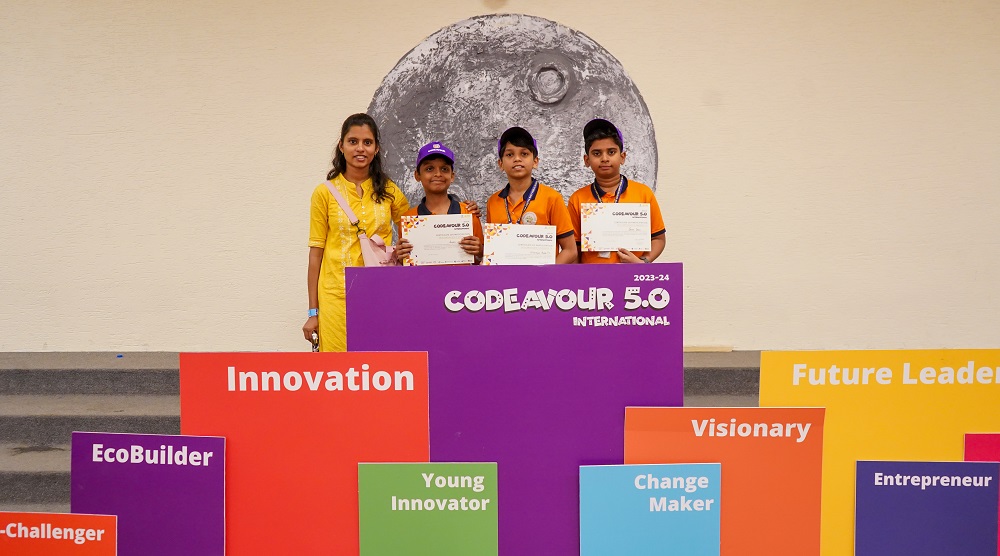
STEMpedia, in collaboration with ART PARK@IISc, India’s premier AI & Robotics Technology Park, established by the Indian Institute of Science in Bengaluru, successfully concluded the national level event of 2023’s biggest innovation fest, Codeavour 5.0 International. This year’s event, supported by leading organisations including AI Foundry, Startup India, and INDIAai, witnessed participation from 300,000 students across 70 countries, underscoring its global impact and the cumulative achievements of the competition to date.
The event, which also enjoyed backing from entities like AWS, NITI Aayog, and STEM.org, focused on fostering hands-on learning and innovation among next-gen participants. They were encouraged to create projects using PictoBlox that would contribute towards making the world a better place, aligning with the United Nations Sustainable Development Goals.
Dhrupal Shah, Director and CEO of STEMpedia, reflected on the journey and the fest’s objectives, saying, “Five years ago, we initiated Codeavour with the intention to empower young innovators and equip them with the necessary skills for the future workforce. This year, we are thrilled to announce that the top 20 winners will be awarded a trip to Mexico to participate in the FAB24 Event, accompanied by their mentors.”
The fest not only highlighted the technical skills of young minds but also provided them with a platform to showcase their creative solutions to real-world problems. In addition to the innovation and entrepreneurship track, participants competed in the AI-Robo City Challenge, demonstrating their prowess in applying AI and robotics to urban development challenges.
The panel discussion titled “AI EduFusion Conclave: Shaping Global School Education with AI, Robotics, and Policy Insights” was a highlight of the event, featuring experts like Dr. Sreejit Chakrabarthy from GEMS Dubai American Academy and Mr. Pankaj Verma from STEMpedia. The discussion provided insights into how governments and educational institutions are integrating AI and robotics into school curriculums to prepare students for future job markets.
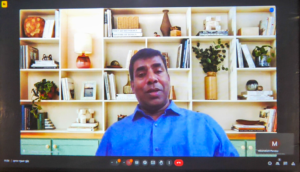
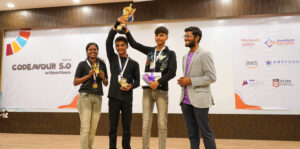
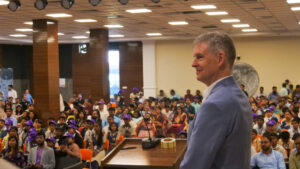
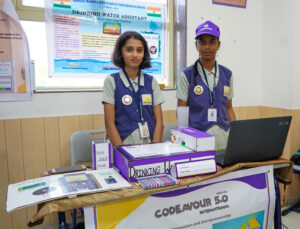
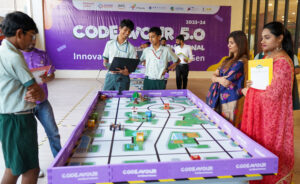
The event culminated with the National Innovation Awards, where participants presented projects that tackled environmental challenges and proposed sustainable solutions. Winners from the event will now proceed to the International Showdown in Dubai, hosted in partnership with Dubai American Academy.
As Codeavour 5.0 International wraps up, its success marks a significant step forward in integrating technology and education, inspiring the next generation of innovators and leaders to think critically and act creatively. The continued expansion of this fest promises to keep pushing the boundaries of what young students can achieve in the fields of AI and robotics.
Education
Reviving School Education: Countering the Coaching Centre Dominance
Published
2 weeks agoon
April 11, 2024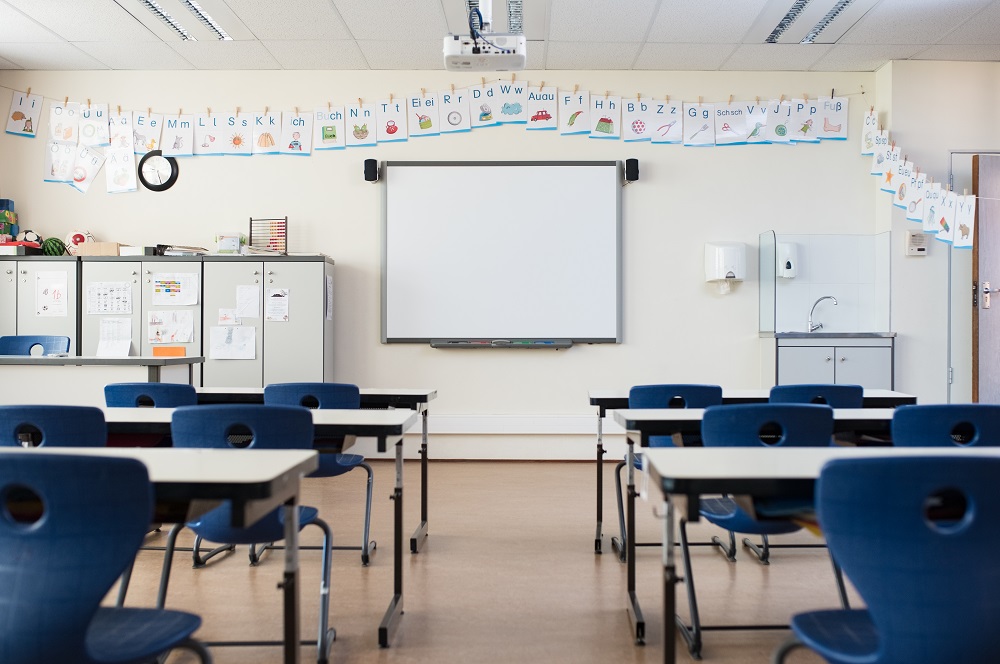
In recent years, a troubling trend has emerged within the educational landscape: the rise of “Dummy Admissions,” where students formally enrolled in schools are effectively abandoning the classroom in favour of coaching institutes. This phenomenon, particularly prevalent from the 11th standard onwards, sees students dropping out of school to prepare for competitive exams under the tutelage of coaching centres, which were originally intended to supplement, not supplant, school education.
The shift has been stark. Coaching, once a support system, has transformed into a parallel education industry, with some arguing it overshadows the broader developmental benefits of traditional schooling. This evolution poses a critical question: How can schools reclaim their role not just as preparatory grounds for board exams but as sanctuaries of holistic education that truly prepare students for life?
The Diminishing Role of Schools
The primary role of any educational institution is to foster an environment conducive to learning, curiosity, and personal growth. Schools are meant to be arenas where young minds receive a balanced education — academically, socially, and emotionally. However, the allure of scoring top marks in competitive exams has tilted the focus sharply towards rote learning and intensive exam preparation, often at the expense of holistic development.
The Coaching Conundrum
Coaching centres operate with a laser focus on results, primarily targeting competitive exams like the JEE, NEET, and others. This narrow approach prioritises immediate academic results over long-term learning and personal development. Students, driven by the pressure to excel in these high-stakes environments, often find themselves estranged from the broader educational experiences that school offers — experiences that are crucial in shaping well-rounded individuals capable of adapting to life’s varied challenges.
Reclaiming the Sanctuary of Education
For schools to regain their central place in the educational journey of students, they must evolve to meet the diverse needs of their students. Here are a few strategies that could help schools reassert their relevance:
- Integrated Curriculum: Schools could integrate aspects of competitive exam preparation into their regular curriculum, thus reducing the need for external coaching. This would allow students to prepare for exams without missing out on the broader educational offerings of the school.
- Focus on Skill Development: Beyond academic prowess, schools should enhance their focus on developing critical life skills such as critical thinking, problem-solving, creativity, and communication. These skills are crucial for success in professional and personal life and can make schooling more relevant.
- Counselling and Support Services: Enhanced counselling services can help students navigate their educational pathways and career choices effectively. Schools should equip students with the tools to make informed decisions about their futures.
- Experiential Learning: Schools must emphasise experiential and contextual learning, making education a more engaging, practical, and enjoyable experience. This can be achieved through project-based learning, internships, and real-world problem-solving scenarios.
- Parental Engagement: Engaging parents in the educational process and informing them about the importance of a balanced education can help shift the focus from mere exam preparation to overall development.
- Promotion of Arts and Sports: Encouraging participation in arts, sports, and other co-curricular activities can enrich students’ educational experience and support the development of a wide range of skills.
As the educational landscape continues to evolve, the challenge for schools is not just to prepare students for exams but to prepare them for life. In a world increasingly dominated by coaching centres, schools must innovate and broaden their educational offerings to ensure they remain valued not just as conduits to board results but as launchpads for the futures of students. It’s about striking a balance between academic rigor and holistic development, ensuring that schools remain the nurturing grounds for the leaders of tomorrow.
To read more on such trends that need to be called out and #un-trended, head to the April issue of our magazine here.
Newsletter

Ivy Pressure Unveiled- The Need to Look Beyond the Ivy Gates

Ooty Set to Host India’s Premier Liberal Arts Symposium: LASSI 2024

Scindia School Students Launch Start-Ups with White Canvas India’s Young CEO Program

Unsupervised Explorations: Rethinking Student Trips

Mapping Green Careers: Guiding Students Towards Sustainable Job Opportunities

Pricey Presents, Precocious Pressures: The Cost of Gift-Giving to Children

Addressing the Transition From Classrooms to Coaching: The Shifted Focus

Questioning the Trend of Lavish Farewells- #FarewellFiasco

Young Birders’ Workshop Opens Registration for Children Aged 10-13 Years

STEMpedia Successfully Completed Codeavour 5.0- India’s National Innovation Fest

Reviving School Education: Countering the Coaching Centre Dominance
CBSE to Initiate Pilot for National Credit System in Grades 6, 9, and 11

The Role of Marketing in Education: Navigating the New Educational Landscape

From Overwhelmed to Empowered: Strengthening Educator Skills for Success

NCERT Introduces Bridge Month Programme for Class 6 Amid Textbook Transition

Indian Embassy Advocates for India-US Collaboration in Education Sector

Nurturing Healthy Behaviors: The Role of Schools in Shaping Health-Conscious Citizens

CBSE Updates Exam Structure for 11th & 12th Class; Concept-based Questions Now 50% of Weightage

Sharing the spotlight: When parent and child take board exams together

Rebalancing the Scales: The Urgent Call for Humanities in STEM-Dominated Curricula

Palette of Possibilities: Nurturing Creativity in Schools through Modern Art

Empowering Minds: The Journey of My Guide Inside with Christa Campsall

The Potential of an Entrepreneurial Development Programme for Primary School Students

FPSB India and IIM Bangalore Forge Strategic Partnership to Advance Financial Education

1 in 6 School-Age Children Face Cyberbullying: Calls for Immediate Action

Life of My Father: Dr. Jagdish Gandhi, a Pioneer in Education

Mayo College Announces New Leadership

Post-pandemic: Embracing Well-being in India’s Schools with My Guide Inside

Empowering the Future: The Success of Beti Bachao Beti Padhao in Girls’ Education

Is Students’ Data in Safe Hands in a Digital World?

Central Government Sets New Framework for Coaching Centres

FPSB India and IIM Bangalore Forge Strategic Partnership to Advance Financial Education

Radio Broadcasting in Schools: Creating a Platform for Student Voices

Kerala Introduces ‘Water-Bell’ Initiative in Schools to Boost Hydration

Farewell to a Pioneer: Dr. Jagdish Gandhi’s Enduring Legacy in Education

India to recognise Farsi as a classical language under New Education Policy

Anticipating a Progressive Leap: The Education Sector’s Hopes for Union Budget 2024

Lexicon Schools Spark Innovation with STEAM Fest

The Need to Preserve Newspapers for Bias-Free Education

A Voice for All Ages: The Enduring Legacy of Ameen Sayani in Indian Education

Seth M. R. Jaipuria School launches CBSE School in Bhiwadi, Rajasthan

From 2025-26, Indian Students to Get Two Opportunities to Sit for Board Exams

The Rising Leaders’ Summit 2024: A Timeless Learning for Future Educational Leaders

International Women’s Day 2024: Are We Not Special?

ISRO Launches Young Scientist Programme 2024 for Budding Space Enthusiasts

Teach for India Invites Applications for its 2024 Fellowship Program

Ministry of Women and Child Development Unveils National Curriculum Framework for Early Childhood Care and Education

World Theatre Day: Let Theatre Arts Make Classroom’s Showtime Spectacular!

India Sets 6-Year Minimum Age for Class 1 Admissions Nationwide

CBSE considering Open Book Exams for classes 9-12, to do a pilot run in November
SGEF2023 | Special Address by Rama Datt, Trustee, Maharaja Sawai Man Singh II Trust, Jaipur

ScooNews | After Movie | ScooNews Global Educators Fest 2023

Aftermovie | NIES2 UP Chapter | 21 Jan 2023

WEBINAR | Gamification in Education: How Digital Badges Can Boost Student Motivation and Engagement

ScooNews | WEBINAR| Importance of Physical Activity for Children at School | Plaeto

SCOONEWS | WEBINAR | WHY DIGITIZING YOUR SCHOOL IS A MUST | TEACHMINT

Keynote Address | Lakshyaraj Singh Mewar

Anurag Tripathi, Secretary, CBSE at SGEF2022

How schools can nurture every student’s genius

Aftermovie | SGEF2022 | Jaipur

Li Andersson | Minister of Education | Finland

Anurag Tripathi, Secretary, Central Board of Secondary Education (CBSE) discusses NEP2020

ScooNews | Early Ed Asia 2019 | Aftermovie
#PodarECEconf : Pursuing quality ECE

#CBSE Class XII #Results #Highlights

The interesting story of India’s educational system | Adhitya Iyer

A young scientist’s quest for clean water

The Danger of Silence: Clint Smith

National Digital Library of India is an initiative by HRD Ministry

Remembering Kalpana Chawla on her birthday!

Message from Sadhguru for Students!
Message from Sadhguru for Students!

The Untapped Genius That Could Change Science for the Better

Eddy Zhong: How school makes kids less intelligent TEDxYouth@Beacon

#TEDxCanberra : What if every child had access to music education…
Trending
-
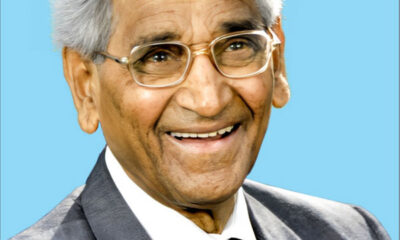
 Inspiration1 month ago
Inspiration1 month agoLife of My Father: Dr. Jagdish Gandhi, a Pioneer in Education
-
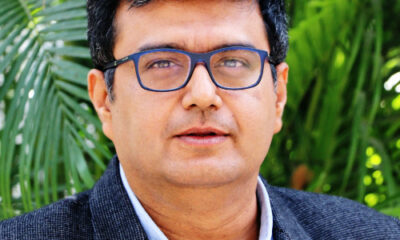
 Education3 months ago
Education3 months agoMayo College Announces New Leadership
-

 Education1 month ago
Education1 month agoPost-pandemic: Embracing Well-being in India’s Schools with My Guide Inside
-
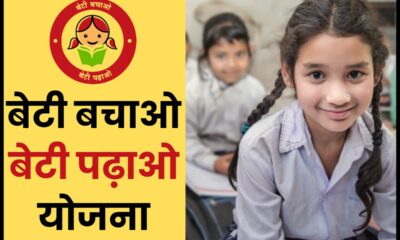
 Education3 months ago
Education3 months agoEmpowering the Future: The Success of Beti Bachao Beti Padhao in Girls’ Education
-

 Knowledge3 months ago
Knowledge3 months agoIs Students’ Data in Safe Hands in a Digital World?
-
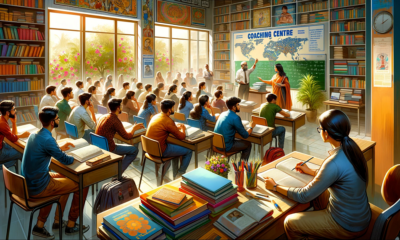
 Education3 months ago
Education3 months agoCentral Government Sets New Framework for Coaching Centres
-
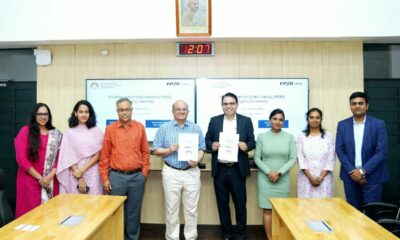
 Education4 weeks ago
Education4 weeks agoFPSB India and IIM Bangalore Forge Strategic Partnership to Advance Financial Education
-

 Education2 months ago
Education2 months agoRadio Broadcasting in Schools: Creating a Platform for Student Voices
-

 Education2 months ago
Education2 months agoKerala Introduces ‘Water-Bell’ Initiative in Schools to Boost Hydration
-
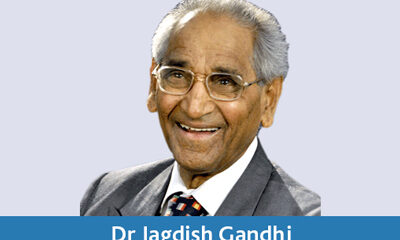
 Education3 months ago
Education3 months agoFarewell to a Pioneer: Dr. Jagdish Gandhi’s Enduring Legacy in Education



